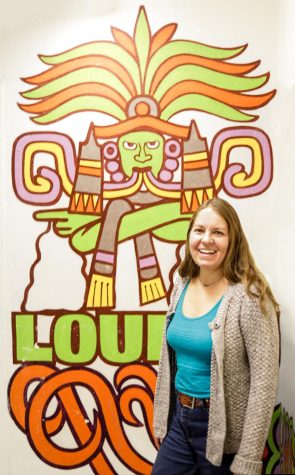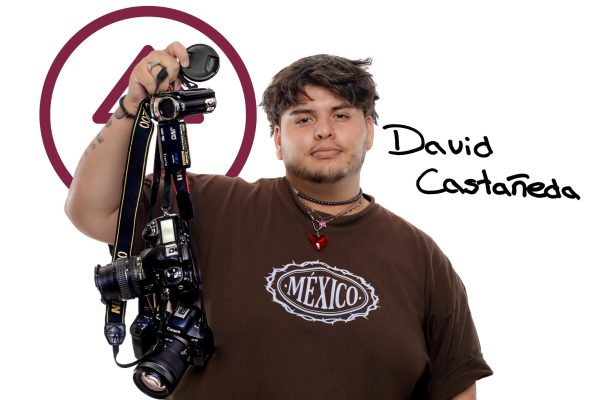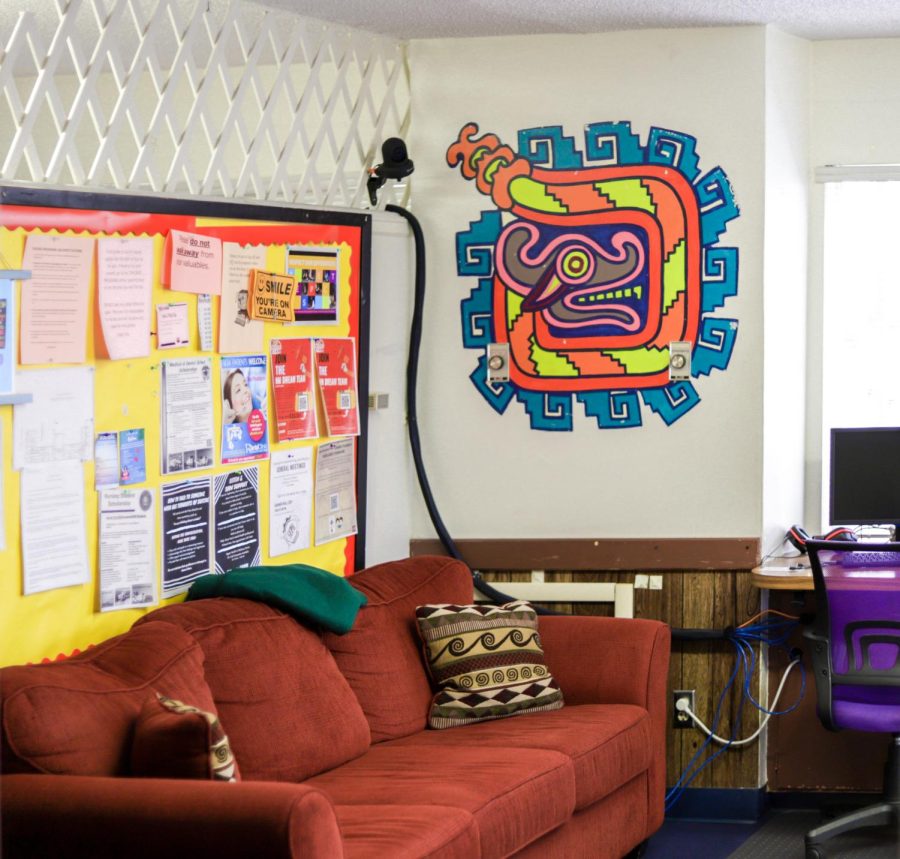Chicano/a Studies can be meaningful to everyone, no matter where you come from
Chicano Programs is located in Room 138 in Garcia Center. Feb. 21, 2023.
Chicano/a Studies is an expansive and diverse field, rich with language, culture and history. For many New Mexico State University students, learning about these histories and cultures of people in the borderlands region is highly relevant and personally fulfilling.
The Borderlands and Ethnic Studies Department (BEST) has been approved to begin offering a Chicano/a Studies minor in the Fall 2023 semester, which comes after an approved proposal of moving the BEST department into the College of Health, Education and Social Transformation. Courses that will be offered in the minor include Chicane Genders and Sexualities, and History of Chicana/o Studies. The existing Chicano/a Studies supplemental major will still be offered alongside the new minor.
Joyce Garay, NMSU associate professor, moved into the BEST department from the English department, where she taught Chicano Literature for many years. She attributed much of her success in teaching at NMSU to the class, which previously was not taught every semester. Garay said that offering the class consecutively is important for all students at the university, especially since such a large majority of NMSU’s student population identifies as Chicano/a. She looks forward to every type of student gaining benefits through the program.

“Chicano studies isn’t only for Chicanos, because we live in a borderlands area,” Garay said. “This is an institution that serves our local populations … Everyone benefits from learning more about what it is to be Chicane in this borderlands place.”
Melissa Espinoza is a second-year graduate student and a first generation college student. She said that in her time at the university, she has focused on finding classes that are related to Chicanx studies. Furthermore, she said that without expressing her cultural background in her work, it wouldn’t be as fulfilling or meaningful.
“As a Chicana academic, it’s incredibly important for me to do that kind of work,” Espinoza said. “I’ve always tried to work with Chicanx or Latinx authors in general, and I think they’re always represented in my work.”
Espinoza remarked that Chicano/a Studies offers a well-rounded education for many students by teaching them about their own histories and ancestors. She mentioned that the new minor will have a great impact on not only academics, but the community of NMSU as a whole, as it “allows an avenue for students of all backgrounds” to learn about what it means to be Chicano/a. Espinoza added that all ethnic studies help build connections across multiple disciplines and create less cultural isolation on campus.
“I think cultural studies should be one of the major things that college teaches you,” Espinoza said. “It’s still so important for you to understand your cultural background and how your culture affects the way you approach your own methodologies in whatever you do … To know who you are, to feel comfortable, and to feel seen in your university makes all the difference.”
NMSU Government Department Head Neil Harvey teaches U.S.-Mexico Border Politics (POLS 378). He said the class focuses on three major components: a historical understanding of current issues faced on the border, studying literature on the concept of coloniality at the border, and analyzing local voices that influence the narrative of the border’s future.
“It’s a very complex history, of course, but if there’s one theme that runs through it, it is the unevenness and inequality between the two countries that is often expressed in the border region,” Harvey said. “One of the things we look at is how the current situation is different, but also the continuities in that long historical relationship.”
Harvey discussed how the narrative surrounding the borderlands is often perceived as negative, but most border residents typically value the region’s rich culture and diversity. He encourages all students to consider pursuing the Chicano/a Studies minor, as it can help all people understand the various histories, conflicts, and diverse narratives of this population. Harvey emphasized that Chicano/a perspectives and history should be studied and discussed in classrooms by everyone, whether or not they identify as Chicanx or Hispanic.
Emily Turley is a sophomore majoring in Justice, Political Philosophy and Law. She’s currently enrolled in the U.S.-Mexico Border Politics course. As a first generation Mexican-American, she can personally identify with the history she is learning in the class. She said that by attending a hispanic serving institution (HSI), many other Aggies can relate to that feeling.
“As an NMSU student, I believe that a Chicano Studies program is incredibly beneficial for the general student body,” Turley said. “Similar to a program like African-American history, we get a more concise explanation of our contribution as Latinos to building this country, both literally and figuratively. It explores a side of history that is typically not discussed in mainstream curriculum.”
Spencer Herrera, Professor of Spanish in the Department of Languages and Linguistics, remarked that education should be a lifelong process. By teaching this curriculum, educators can expose students to many new opportunities. He said that it’s natural for all people to want to learn about who they are and where they came from, and students who take courses in Chicana/o Studies are no different.
“Chicana/o literature, history, and art should be studied by all who live in the U.S.,” Herrera said. “The fields belong to all of us. They enrich our lives and our communities.”

Riley Robertson is in her third year with The Round Up, and her second as the Editor-in-Chief. She is a senior at NMSU double majoring in Journalism and...

David Castañeda is starting his fourth year as a part time student at NMSU, and his fourth year at The Round Up. As the Multimedia Editor David’s in...

